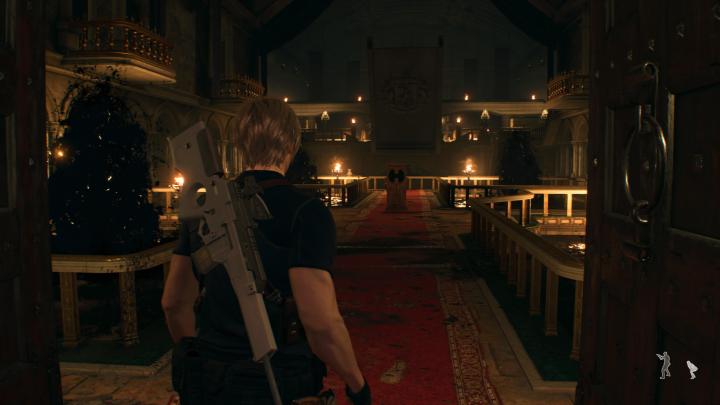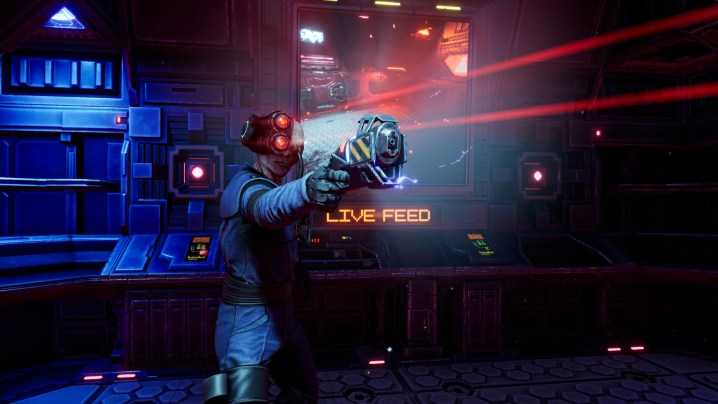Back when Capcom announced its Resident Evil 2 remake, I was ecstatic. This was a game I had missed when it first came out, and it was an important part of a series I had grown to love. However, its outdated gameplay meant it was close to impossible to go back comfortably, and its age meant it was tough to play legally. If I wanted to play Resident Evil 2, I would either have to head towards emulation (which I have no patience for) or rely on the remake. The latter, as it turned out, was ideal.
You’ll find remakes across all of media, so the idea isn’t anything new. But video games are in the middle of a remake boom with studios spending a lot of money on taking existing IP and looking backward at a seemingly more frantic pace. Cynically, it’s just another way they can make money off of a beloved series, but it’s also a way to bring older, important games to newer audiences.
Now that we’re a few years into this spree, new trends are starting to emerge. For a while, video game remakes were mostly faithful recreations of the original games with some modern upgrades. Think of the move from fixed camera angles to over-the-shoulder third-person in Resident Evil 2 or the addition of more accessibility features in The Last of Us Part 1. But with this year’s Resident Evil 4 remake, we’re starting to see a different path forwards. Capcom is showing players why it’s sometimes worth throwing out the old to bring in the new.
The Resident Evil 4 remake is changing the game
The announcement that Resident Evil 4 was getting a remake was a foregone conclusion due to the success of Resident Evil 2 and, to a lesser extent, 3. At first, it felt unnecessary. It’s not the smoothest gaming experience these days, but Resident Evil 4 is still playable and is much easier to find digitally than others that get the remake treatment. It felt like more of a cynical money grab than an effort to create a great gaming experience. Then, Capcom started releasing trailers to show how much it changed, and fans started to get anxious.
But to the surprise of many, Resident Evil 4 is one of the best video game remakes due to these changes. They’re not all perfect, but most of them are for the better. It gets that what made Resident Evil 4 great was its combination of action, horror, high camp, and elaborate set pieces. It’s silly and tense, sometimes within the span of a few seconds, and throws the player in so many different directions throughout its runtime. Plus, it’s just iconic. So many aspects have permeated pop culture; even if you don’t know Resident Evil 4, you probably know “what’re ya buyin’?” But it understands that it could stand to grow up a bit.

The combat was one of the most defining parts of the original game, and Capcom made sure to keep most of it in. But it’s cleaned up, with small tweaks that make huge changes. A lot of them are just responses to trends. Players aren’t fans of quick time events, for example, so the remake took most of them out. However, it created a new parry system that not only changes up regular combat but still manages to challenge player reflexes. This is the most apparent in set pieces like the Krauser fight, which was defined almost entirely by quick time events in the original. You still have to hit a button to evade some attacks, but it’s less focused on if you can hit various buttons in quick succession. And it’s not an immediate death if you fail.
The Resident Evil 4 remake is a cavalcade of moments from the original but done either better or with more self-awareness. It’s full of jokes for older players (like getting up to the tower in the first village area, only to have it collapse on itself instead of letting you stay up there and basically cheat the encounter) and callbacks. Sometimes they’re taken nearly beat for beat from the first one, but they’re often cleaned up or with new details.

Take Ashley, for instance. In the original, she was constantly getting carried off by enemies, calling for help, and whining when times got hard. In the remake, she still gets carried off a lot, but Capcom cut out a lot of the sexist jokes and made her less of a victim. She’s a kid in a tough situation, and despite moments where she’s clearly out of her depth, she toughens up because she has to and because she doesn’t want to burden Leon anymore. She’s still Ashley the President’s daughter, who Leon has to save, but she has layers now. She has reasons to react how she does, and it’s so impactful.
The Resident Evil 4 remake is a different game from its predecessor but it’s also … somehow not. It plays better, the characters have been fleshed out or moved around, and the features that didn’t age well have either been removed or changed. But this is still Resident Evil 4. It’s still the story of Leon Kennedy and his mission, the ridiculousness of Umbrella, and the disgusting horror of Las Plagas. It was just made in 2023.
The faithful route
The new version of Resident Evil 4 stands out because it charts a somewhat radical new direction for studios to consider. Before it, a lot of studios opted for faithful remakes (with only occasional overhauls like Final Fantasy VII Remake). The original Dead Space came out in 2008, so it wasn’t necessarily due for any changes. It’s still easy to find for modern consoles thanks to Xbox Game Pass too. But it cleans up gameplay, upgrades the graphics, and makes small tweaks to dialogue and text logs to flesh out certain characters. Its biggest change is giving protagonist Isaac Clarke the voice he had in the sequels, which allows him to comment on events he never did before and to build rapport with other characters. But otherwise, the game has a simple task: to remind you why the series is worth playing. It’s not trying to redo anything, which was the right call.
Even other Resident Evil remakes haven’t been quite as radical as Capcom’s latest. Resident Evil 2 goes a little further than Dead Space‘s 1:1 approach but has the same philosophy. It takes the essence of the original, along with all the important story beats, and brings it up to modern-day trends. Sure it makes significant changes, like increasing the role of Mr. X, having heroes Leon and Claire interact more, and moving from fixed camera angles and tank controls, which have fallen out of fashion, to the standard third-person, over-the-shoulder shooting that Capcom developed starting with Resident Evil 4.

The System Shock remake, which was on display at PAX East this year, feels like it’s going for a similar goal. As one of the earliest 3D shooters, it would obviously need an upgrade for modern audiences, but it’s still very retro-inspired. The plot is still simple, the pacing is fast to get you into the action faster, and it has touches like just slightly imprecise weapon handling that give the game the right bit of “jank.” The graphics and animations have gotten the most enhancements, with more detailed models contrasting against pixelated backgrounds to create a gorgeous effect. From my short preview, it still feels very much like the developers wanted to keep the essence of the original but had to account for decades of game design trends.
These games might play differently, but you’re still getting the same experience — and, in many ways, a better one — compared to the original. The developers understand that what makes a game iconic isn’t 1990s game mechanics. It’s the story, atmosphere, a certain level of difficulty, and a host of other undefinable traits that can make a piece of media feel unique.
The Resident Evil 4 remake features way more drastic changes, especially for a game that’s much newer than System Shock, but it still strikes a good balance between old and new. It introduces the idea that a studio can do a large overhaul of an existing game but still make it feel similar to the original, and that’s going to be a game-changer going forward.
We’ll be getting new kinds of remakes
Resident Evil 4 doesn’t present a perfect template for every game to follow. The Dead Space remake takes a weirdly novel approach by changing very little from the original because it doesn’t need to. Final Fantasy VII Remake is almost an entirely different game. But the best video game remakes are there to remind you that the original exists and is being remade for a reason, whether they make big changes or very few.
Capcom has shown that it’s possible to make a game remake that appeals to newer audiences with updated mechanics while creating love letters to older players. It reminds you that the new version couldn’t exist without the original. And as studios look to invest in more remakes — Silent Hill 2, Lollipop Chainsaw, Knights of the Old Republic, and so many others have already been announced — they can look to what Capcom has done to understand how to do it correctly.
Resident Evil 4 is out now on PS4, PS5, Xbox Series X/S, and PC.
Editors’ Recommendations
Services Marketplace – Listings, Bookings & Reviews